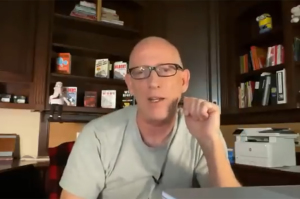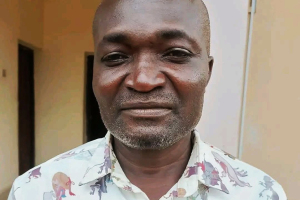Record number of abortion pill reversal calls to pro-life ministry amid COVID-19 crisis

A record number of calls have been received by the Abortion Pill Rescue Network, which helps women seeking to reverse the effects of the abortion pill.
“We are now seeing over 80% of our callers start the reversal process," Andrea Trudden, communications director for Heartbeat International, told Live Action. The Abortion Pill Rescue Network is run by Heartbeat International, a pro-life ministry aimed at providing alternatives to abortion to help moms keep their babies.
“We understand this is a stressful time for many, and some women are starting chemical abortion because that is the only option they can see,” she said, noting that many of the calls come from “from the abortion facility parking lot or from the car on the drive home because the regret is immediate.”
In the month of March, 105 mothers started the process of halting their chemically-induced at-home abortions after they called the APRN hotline.
A chemical abortion occurs where a woman ingests mifepristone — which is also known as RU-486 — to block the progesterone hormone, causing the unborn child to die due to lack of oxygen and nutrients. When progesterone is withdrawn, the uterus lining, the source of nourishment for the baby, breaks down. The mom takes another pill 24 to 48 hours later to induce contractions and expel the body of the baby.
"If a mother who changes her mind after beginning a chemical abortion receives supplemental progesterone before taking the second pill, there is a chance to save the baby’s life and continue with a normal pregnancy. The abortion industry has attempted to discredit the abortion pill reversal process and is using the pandemic to push for expanding dangerous telemedicine abortions," Live Action noted.
The 2019 motion picture "Unplanned" — which dramatically recounts the story of former Planned Parenthood clinic director turned pro-life advocate Abby Johnson as told in her 2014 memoir of the same name — powerfully depicts this kind of chemical abortion. In the film, a distressed Johnson self-administers the drugs, which she obtained at the same Planned Parenthood clinic where she would later work to end her second pregnancy.
Johnson is portrayed by actress Ashley Bratcher, who has since gone on to partner with Heartbeat International to provide scholarships in the name of the movie for mothers who find themselves facing an unplanned pregnancy but want to keep their babies and continue their education in pursuit of career goals.
The uptick in abortion pill reversal calls to the Abortion Pill Rescue Network comes amid a worldwide pandemic and a shutdown of U.S. businesses and services deemed "non-essential," though the criteria for that designation has varied state by state. In some states, like Texas and Ohio and Alabama, abortion clinics have been ordered to close, arguing that abortions are not medically necessary procedures though those bans have been contested in the courts.



























